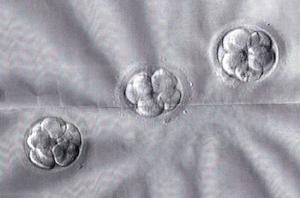By Alycia Halladay, PhD
Earlier this week a study came out which examined the risk of autism after in vitro fertilization, or IVF. Data was pulled from California datasets, and it was among the largest study of its kind. A previous study using a nationwide database in Sweden had only shown an increase in risk after only specific types of procedures. In contrast, this latest study showed doubling the risk of ASD, without specifying what type of procedure was involved.
The study is important because there have been concerns about the outcome of children conceived via IVF. Because rates of IVF have increased over the past 2 decades, one of the concerns from parents has been the association between IVF and autism. This study showed a nearly 2x increase in autism risk after IVF, and that most of this increase risk was due to IVF related multiple pregnancies. When the analysis excluded multiple births, the increased risk was no longer seen. The risk also significantly decreased when only women under the age of 35 were included in the sample.
One of the authors of the paper, Dr. Peter Bearman, was very bold in his conclusions of the study. He said, “Knowing that one can largely reduce the risk of autism by restricting the procedure to single-egg transfer is important for women who can then make better informed decisions.” Autism Speaks said in their report, “In recent years, reproductive medicine societies have recommended a general reduction in the number of embryo transfers, and this has reduced rates of multiple births.” First, there is no such thing as a “single-egg” transfer, so Dr. Bearman must have been referring to single-embryo transfer. Second, reproductive medicine societies have efforts in place to reduce the number of multiple births, not the number of transfers per se.

For clarification, ASRM has specific guidelines on single embryo transfer, including only being appropriate for women under the age of 35. http://www.asrm.org/FACTSHEET_Elective_Single_Embryo_Transfer/. Second, the decision on how many embryos to implant are considered by both parents, not just women. Taken together, some of the comments around the study can make this issue confusing. Therefore, I thought it was important to get the perspective of a board certified physician on this issue, someone who is trained and trusted to counsel women who are undergoing this procedure.
Dr. Owen Davis, a board certified physician and president-elect of the American Society of Reproductive Medicine commented, “Multiple pregnancies are associated with many adverse pregnancy and birth outcomes, and the goal of physicians is to reduce the number of multiples while still ensuring the best chance for a successful pregnancy. The current guidelines set forth age and day of transfer as important variables. As age goes up, aneuploidy rates increase, and transfer of more than one embryo may be appropriate to ensure at least one goes on for a full term pregnancy.”
Therefore, the message to the autism community is: before you make any decisions about IVF based on autism risk, talk to your reproductive endocrinologist. Scientific studies should inform, not replace, those discussions.
